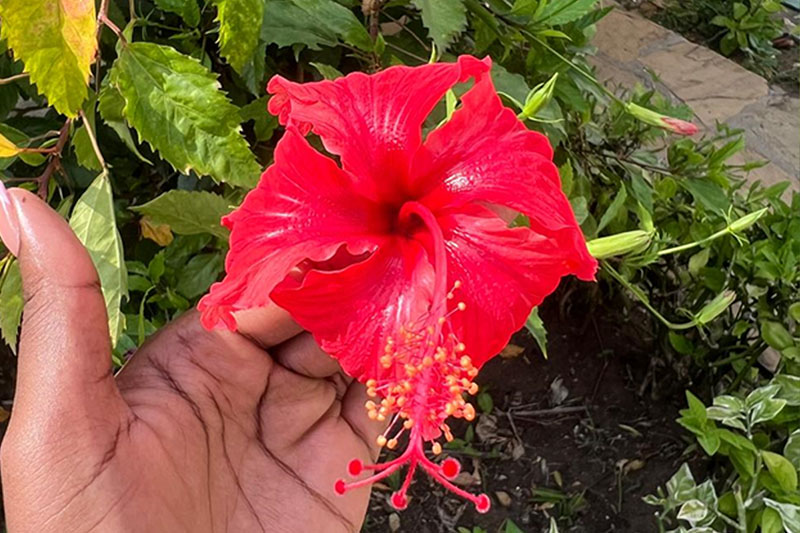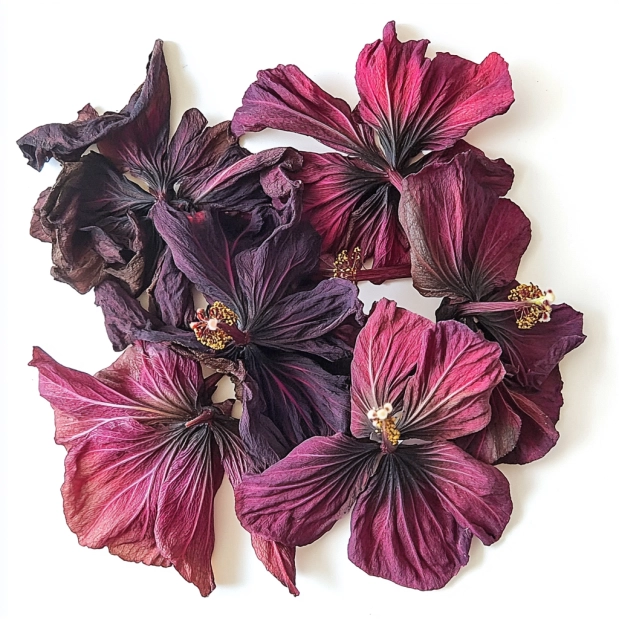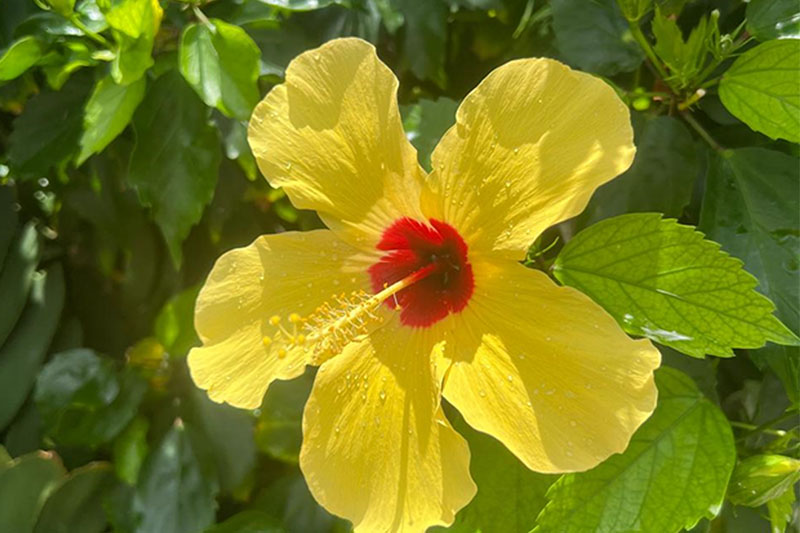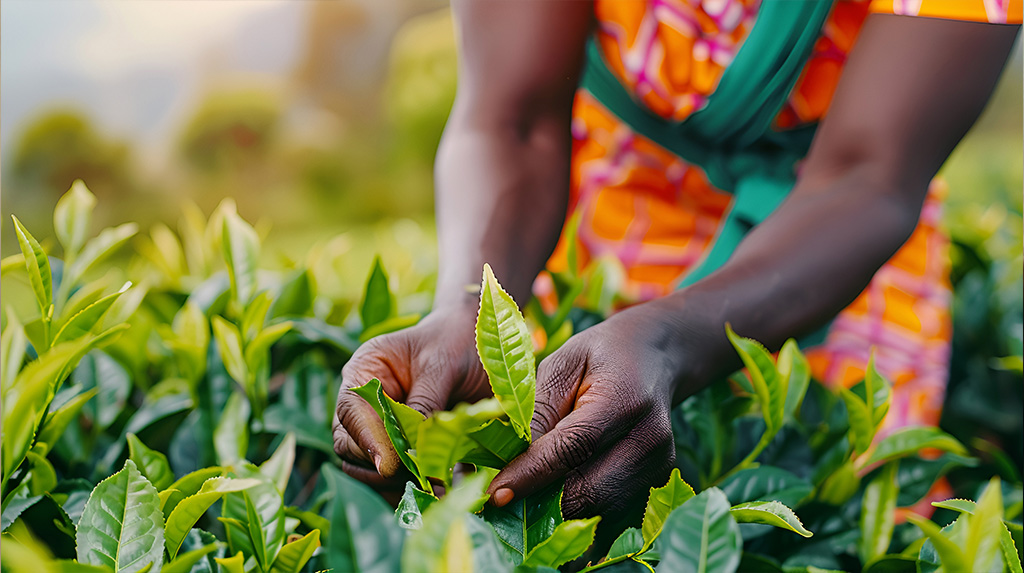Recently updated on: August 30th, 2024
Traditional African teas have always been known for their excellent taste, cultural significance, and various medical uses. These herbal teas are by no means mere drinks; they have been part of the society and culture of African people for centuries. From the natural red Rooibos of South Africa to the healthy hibiscus tea consumed in the West African countries, each type has its history associated with the soil and people. There is now a trend toward African tea. As scientific research goes on to provide scientific evidence of the health benefits of these natural remedies, more and more people are turning to these traditional African cures. Drawing from historical use, types, health effects, and cultural aspects of traditional African teas, this article seeks to understand why these natural remedies remain valued to date and how they provide health solutions in today’s society.
Historical Background of African Traditional Teas
African traditional teas have a rich background associated with the history of African culture and geography. These herbal infusions have been around for ages and have served as social and healing vessels in African societies. Tea in Africa has a history of discovery by different native tribes that realized the importance of some plants. For instance, the Khoisan people of South Africa traditionally use Rooibos and Honeybush teas for their calming effects and nutritional value.
Kinkeliba tea, widely consumed in West Africa for many health benefits, such as detoxification, has been an essential ingredient in traditional medicine for diseases such as diarrhea, fever, and many more. Likewise, Hibiscus tea, often called Bissap, has been drunk for its more excellent and heart healthier beverage. These teas were not simply drinks but a part of a culture and were used to portray the aspect of hospitality and unity. These teas have, therefore, been prepared and taken through generations, giving them a natural heritage way of preparation. Traditional African teas are getting an international market reputation as natural herbal teas with impressive flavors and health-enhancing qualities tied to modern trends.

Types of African Traditional Teas
Traditional African teas include various flavors, and the health benefits of each type depend on the type of flora found in the African continent. Here are some of the most renowned varieties:
Rooibos
Specifically, from South Africa, Rooibos, or red bush tea, is famous for its juicy, earthy taste and bright red hue. It does not contain caffeine and is an antioxidant containing aspalathin, which can decrease inflammation and protect against oxidative stress. It is used regularly to improve heart health, skin conditions, and digestion.
Honeybush
Like Rooibos tea, Honeybush tea originates from South Africa and derives its name from the honey-like fragrance of the plant. It is believed to have a calming effect and is especially helpful for those with a cough or other breathing problems. Honeybush tea is also a good source of antioxidants, and it may help lower blood sugar levels and manage menopausal syndrome due to its phytoestrogens.
Kinkeliba
Kinkeliba tea, consumed by citizens of many West African countries, including Senegal and Mali, is well known for its effect on the purification of the body. Traditionally known as “the tea of long life,” Kinkeliba treats digestive disorders, liver complaints, and tiredness. It is derived from the leaves of the Combretum micranthum plant and is commonly used to purify the body and enhance energy.
Bissap (Hibiscus)
Bissap or Hibiscus tea is prevalent in West African countries due to its slightly acidic cranberry-like taste and vibrant red color. They have a high vitamin C and anthocyanin content that helps with antioxidant and anti-inflammatory activities. It is also used in treating or preventing hypertension, liver disorders, and other metabolic conditions, including diabetic patients.

Hibiscus flower
Hibiscus flower (Hibiscus sabdariffa), is also known as Sudan mallow or oxalis ketmia. It is used in herbal medicine and in the food industry, especially in dried form for teas and infusions.
Lemongrass
Lemongrass tea, consumed in several African countries, has gained popularity for its authentic lemon taste and medical properties. It has been historically employed to alleviate pain, decrease inflammation, and induce sleep. Lemongrass tea is also effective for improving digestion and quality of sleep.
These teas have distinctive tastes and provide several health benefits, making African traditional teas a natural heritage of the African continent.
Health Benefits of African Traditional Teas
The African traditional teas are perhaps one of the few conventional healings renowned for the numerous health benefits they possess owing to traditional knowledge. Rooibos tea grown in South Africa contains antioxidants, including aspalathin, that help protect the heart by fighting free radicals and inflammation, resulting in skin complications. Likewise, Honeybush tea, also from South Africa, cures respiratory illnesses such as coughs and colds and phytoestrogens that help in menopausal conditions. West African Kinkeliba tea is known to help detox and improve digestion and liver performance. Hibiscus tea or Bissap is widely used to regulate blood pressure and has detox effects on the liver. Lemongrass tea has anti-inflammatory and anti-arthritic effects, relieving pain and better digestion.
These teas not only serve particular functions in the body but are also effective in improving the general health of an individual. Rooibos and Honeybush teas have the potential to enhance cardiovascular health and manage diabetes by regular consumption. Kinkeliba and Hibiscus have medicinally active components that strengthen the immune system and metabolism, while Lemongrass supports relaxation and sleep. Consumption of these teas will allow the traditional healing properties of these conventional teas to supplement daily work and family schedules as part of a comprehensive healthcare delivery system embraced both traditionally and currently.

Traditional Preparation Methods and Modern Adaptations
The way and manner of preparing teas in many African regions are fundamental yet culturally inclined. For instance, Rooibos and Honeybush teas are often made by brewing the leaves and steeping them for a long time to bring out the taste and healthy nutrients. Likewise, in the case of Kinkeliba leaves, the leaves can be boiled and then steeped for up to 24 hours to achieve the best results regarding detoxification. Hibiscus, or Bissap, is typically produced by steeping the dried petals and incorporating additional natural sugars such as honey or sugar. It can be served cold. Lemongrass tea is obtained by steeping the fresh or dried lemongrass stalks and, in some cases, with ginger or other complementary plants.
Nowadays, these traditional teas have gone through changes and shifts to enable them to suit today’s world. There are tea bags and plenty of free tea options, meaning people can use them without preparing them for long periods. Different preparations, such as using a teapot or an infuser, have been developed to make brewing faster. Moreover, iced tea versions and favored blends are available now, which is helpful for people with different preferences. These modern adaptations aim to sustain the African traditional tea heritage and, at the same time, package them in a way that is suited for the current market.
Scientific Research and Evidence
Many scientific researches have endorsed the health effectiveness of traditional African teas. Researchers have found that Rooibos tea has antioxidant and anti-inflammatory properties and could be used to treat cardiopathy and diabetes. Honeybush tea is claimed to be beneficial for menopausal complaints and respiratory conditions due to phytoestrogen action. Kinkeliba and Hibiscus teas are known to contain antioxidants that assist in the expulsion of toxins from the human body and control hypertension, respectively. It is also accepted that lemongrass tea possesses anti-inflammatory and analgesic qualities. This research synthesizes folk wisdom with contemporary evidence-based practice to validate the pharmacological efficacy of these medicinal teas.
Cultural Significance and Rituals
African traditional teas are, therefore, of immense cultural value, steeped in group and ritual uses. In many African communities, tea has a tradition of welcoming people, so frequently, it is offered to guests. Tea-related activities are present in various ceremonies, from weddings to healing ceremonies.
For instance, preparing Rooibos tea within the communities of South Africa symbolizes togetherness, and Kinkeliba tea within the West African region is a crucial component for breaking fast during Ramadan. These teas are not only good for boosting human health but also help people to maintain cultural values and to enhance social contacts.
Conclusion
The African traditional teas are delicious and have the additional advantage of giving the consumer immense benefits to their body. These teas are not simply drinks; they are part of culinary traditions that have developed over hundreds of years and take on the characteristics of healthy living today. Adopting these teas creates a link between traditional knowledge and modern-day health, both significant factors in promoting people’s well-being.
References
Aziz, M. A., Pieroni, A., Abidullah, S., & Nedelcheva, A. (2021). A rich fading biocultural diversity? A review of traditional herbal teas used by minorities in the Balkans. Turkish Journal of Botany, 45(8), 713-722.
Beta, A. (2020). A review of the production and uses of herbal teas. Journal of Current Research in Food Science, 1(2), 01-03.
Kumar, A., Kumar, R., & Gangwar, S. (2024). Herbal Tea: A Sip of Wellness and Serenity. https://agritechmagazine. com, 8, 67.
Malongane, F., McGaw, L. J., Debusho, L. K., & Mudau, F. N. (2020). Sensory characteristics and volatile compounds of herbal teas and mixtures of bush tea with other selected herbal teas of South Africa. Foods, 9(4), 496.
Matsabisa, M. G., Bala, A., Tripathy, S., Digashu, M. M., Rautenbach, F., Dassarma, B., … & Kang, Y. (2022). Study on South African Indigenous Teas—Antioxidant Potential, Nutritional Content, and Hypoxia-Induced Cyclooxygenase Inhibition on U87 MG Cell Line. Molecules, 27(11), 3505.
Odimegwu, J. I. (2022). Knowledge of African Traditional Medicine System: Immunomodulation. In Plants and Phytomolecules for Immunomodulation: Recent Trends and Advances (pp. 147-161). Singapore: Springer Nature Singapore.


